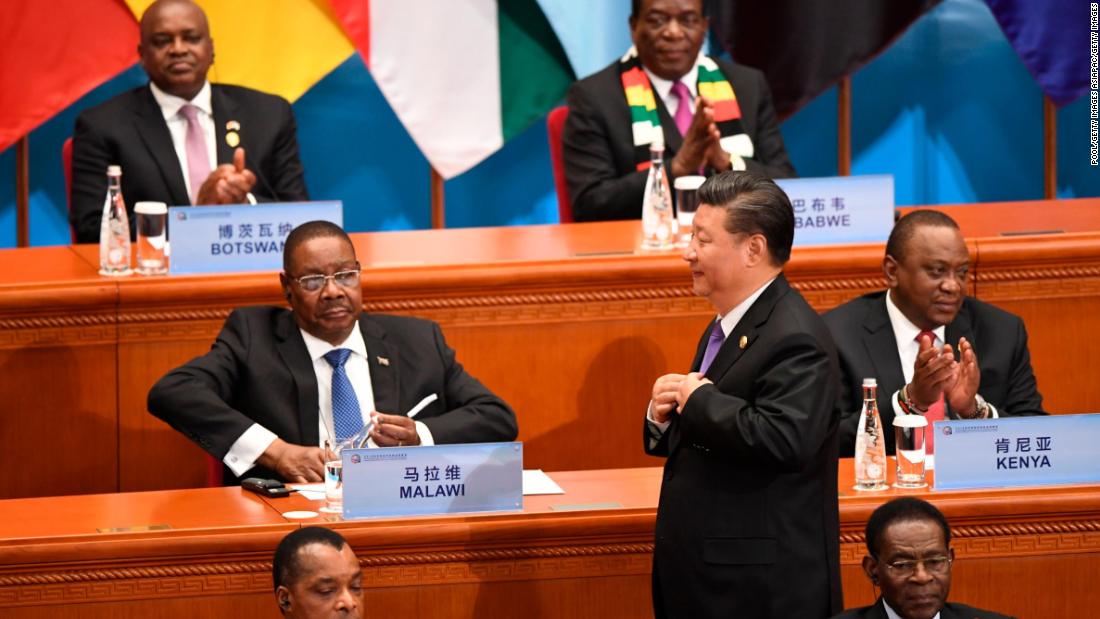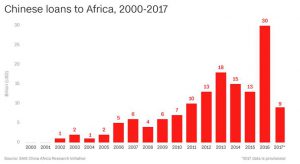
African and Chinese leaders have wrapped up a three-day summit of the Forum on China Africa Cooperation (FOCAC) in Beijing, China, during which they reviewed and advanced cooperation to strengthen socio-economic development in both Africa and China.
At the forum with the theme: Towards an Even Stronger Community with a Shared Future through Win-Win Cooperation, China President Xi Jinping pledged a $60 billion Chinese investment, loans and aid to African countries and there’s no cut-throat condition attached with the deal.
Similar amount in investment package was delivered by China in the 2015 summit to African leaders, with President Xi releasing $60 billion to fund 10 China-Africa cooperation projects.
The 2018 summit, which was attended by over 50 presidents and heads of state Africa, focused on issues of mutual interest, including cooperation on agricultural transformation, industrial and infrastructure development as well as science and technology, with a key focus on business development through the high-Level Dialogue of China-Africa Leaders and Business Representatives, and the 6th China-Africa Business Forum.
The attendees also discussed how they would strengthen strategic relations, consolidate political cooperation, as well as development of the bilateral ties in the context of the One Belt, One Road Initiative and the African Union (AU) Agenda 2063.
The One Belt, One Road initiative, announced by President Xi in 2013, is a development policy with a vision of economic, political and security development to initiate joint action to build a new world order that is development-oriented, for mutual prosperity and human security.
Agenda 2063 is a continental strategy adopted by the AU in 2013 and aims to optimize the use of Africa’s resources for African development to enable the continent to take its place in the world economy.
However, there is a growing concern among Africans, who saw the Chinese sudden interest in Africa as a strategy to colonize the continent in modern times.
But, South African President Cyril Ramaphosa dismissed claims that China was aiming to colonize Africa, saying the Chinese government instead had been a partner in boosting social and economic development on the continent.
Ramaphosa, in his remarks at the ceremony, said: “Since its launch in the year 2000, FOCAC has grown both in extent and scope. It serves as an effective platform for cooperation focused on the tangible improvement of the quality of lives of the people of Africa.
“In the values that it promotes, in the manner that it operates, and the impact it has on African countries, FOCAC refutes the view that a new colonialism is taking hold in Africa, as our detractors would have us believe.”
Ramaphosa said FOCAC was concerned with a lot more than trade and investment.
“We are working to build an Africa that is defined by good governance, democracy, respect for human rights, justice and the rule of law,” Ramaphosa said, describing China-Africa relations as a “dynamic force in the international arena”.
President Xi declared that the Forum on China-Africa Cooperation was hinged on the principle of non-interference in the internal affairs of members and a realisation of the importance of multilateralism.
President Xi said: “China follows a ‘five-no’ approach in its relations with Africa: no interference in African countries’ pursuit of development paths that fit their national conditions; no interference in African countries’ internal affairs; no imposition of China’s will on African countries; no attachment of political strings to assistance to Africa; and no seeking of selfish political gains in investment and financing cooperation with Africa.”

The $60 billion package of aid, investment and loans to Africa was announced against a backdrop of growing concern about rising debt distress on the continent.
Africa has borrowed about $130 billion from China since 2000, with loans generally used to finance infrastructure projects. Earlier this year, the IMF warned that the African continent is facing a debt crisis, with 40 per cent of low-income countries now in debt distress or at high risk of this.


